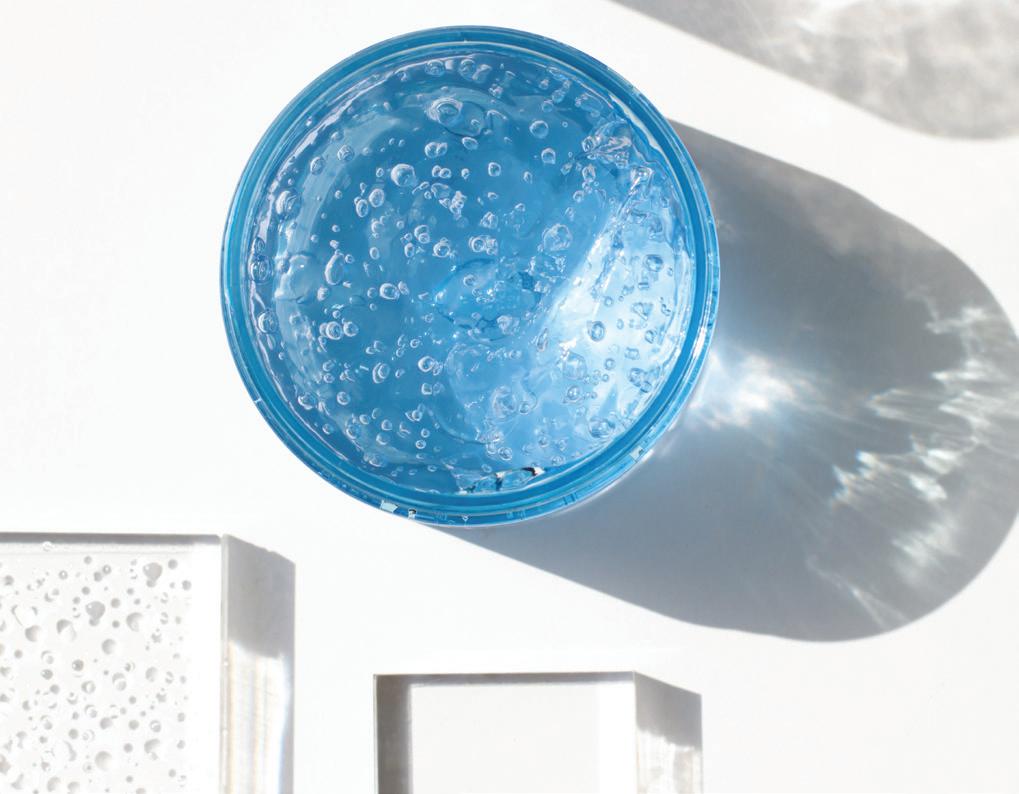
3 minute read
Sinarmas expands
RENEWABLE NEWS Sinarmas expands bio-chemicals production
Sinarmas Cepsa (SCPL) is expanding production of bio-based chemicals at its site in Lubuk Gaung, Indonesia.
A 50/50 joint venture of agribusiness giant Golden Agri-Resources (GAR) and Spanish oil and gas firm Cepsa, SCPL said the increase in production was expected to advance the company’s growth strategy, contribute to solving environmental challenges and support sustainable farming practices in Indonesia.
“Sustainably-sourced, bio-based alternatives are key requirements for our customers and the markets we serve,” SCPL CEO Kung Chee Wan said on 8 November.
SCPL operates a fatty alcohol plant in Indonesia and produces surfactants in Germany for the European market.
GAR’s primary activities in Indonesia include cultivating and harvesting oil palm trees; processing fresh fruit bunches into crude palm oil (CPO) and palm kernel oil (PKO); and refining CPO into products such as cooking oil, margarine, shortening, biodiesel and oleochemicals; in addition to selling palm products globally. GAR also operates oilseed businesses including soyabean-based products in China and sunflower-based products in India.
As well as its global oil and gas activities, Cepsa manufactures products from plant-based materials and is active in the renewable energy sector.
IN BRIEF
BRAZIL: Brazilian petrochemical company Braskem said on 25 October that it would invest around US$60M to expand its production of sugarcane-based biopolymers.
Braskem said it was also exploring the possibility of building a new biopolymer factory in Thailand in partnership with local chemical company SCG Chemicals.
The firm said it was looking into collaborations in other areas, including one with Lummus Technology for biopolymer technology licensing, which would lead to the development of new bio-based materials.
BELGIUM: Production at renewable product developer Stora Enso’s new US$9.4bn pilot bioplastics plant at the company’s Langerbrugge recycled paper mill near Ghent is due to start by year end.
The company said on 3 November that it would test its FuraCore technology to produce furandicarboxylic acid (FDCA), a major building block of polyethylene furanoate (PEF), which could replace PET bottles, aluminium cans and glass jars.
Initially, the facility would use industrially-available sugar (fructose) as feedstock but the aim was to use cropbased sources, specifically sugars extracted from wood and other non-food biomass.
The plant was expected to move from pilot stage to industrial scale in 2026. Malaysia’s OCiKumho Sdn Bhd held a groundbreakiing ceremony for a RM1.7bn (US$373,436M) epichlorohydrin (ECH) plant at the Samalaju Industrial Park in Bintulu on 2 November.
When operational, the new plant will produce ECH using glycerine as a feedstock, according to an Everchem Specialty Chemicals report on the same day.
ECH is traditionally produced from petrochemicalbased propylene but can also be made from glycerine, a by-product of biodiesel and oleochemical production.
OCiKumho is a joint venture between Malaysian chemicals firm OCIM Sdn Bhd and South Korea-based Kumho P&B Chemical Inc. The Malaysian Investment Development Authority (MIDA) said on 8 August that the 100 kilotonne/year plant would be the first to manufacture ECH in Malaysia, with construction due to begin in the first quarter of this year, and test operations to start in first quarter 2024.
The project was in line with Sarawak state’s Post COVID-19 Development Strategy 2030, which encouraged more development in green and renewable industries, Deputy Premier Datuk Amar Awang Tengah Ali Hasan said in the Everchem report.
Global glycerine supply comes from the biodiesel and oleochemical sectors. In oleochemical production, most glycerine is outputted as refined glycerine, with almost half of demand coming from the food and pharmaceutical sectors. ECH is the next largest user of refined glycerine.
The main application for ECH is epoxy resin, which is used in a wide variety of coating applications including paints, electronics, construction, composites and adhesives.
Groundbreaking for ECH project in Bintulu
Glycerine is a by-product of biodiesel and oleochemical production
Huntsman launches vegetable oil-based foam
Global chemicals company Huntsman has launched a visco-elastic foam with a vegetable oil content of up to 20% for moulded acoustic components in the car industry, Plastics Today wrote on 4 November.
According to the company’s website, the new Acoustiflex VEF BIO product comprises a mix of a polyol blend with methylene diphenyl diisocyanate (MDI) and additives. It can reduce the carbon footprint of carpet underlay in cars by up to 25% compared with existing Huntsman systems for this application, according to the Plastics Today report. The technology could also be used for dash and wheel arch insulation.
The bio-based content in the Acoustiflex VEF BIO system has no impact on the acoustic or mechanical characteristics required by manufacturers, according to Huntsman.
The lightweight semi-rigid foam product could also be used to create components with complex geometric shapes and sharp angles, the company said.

